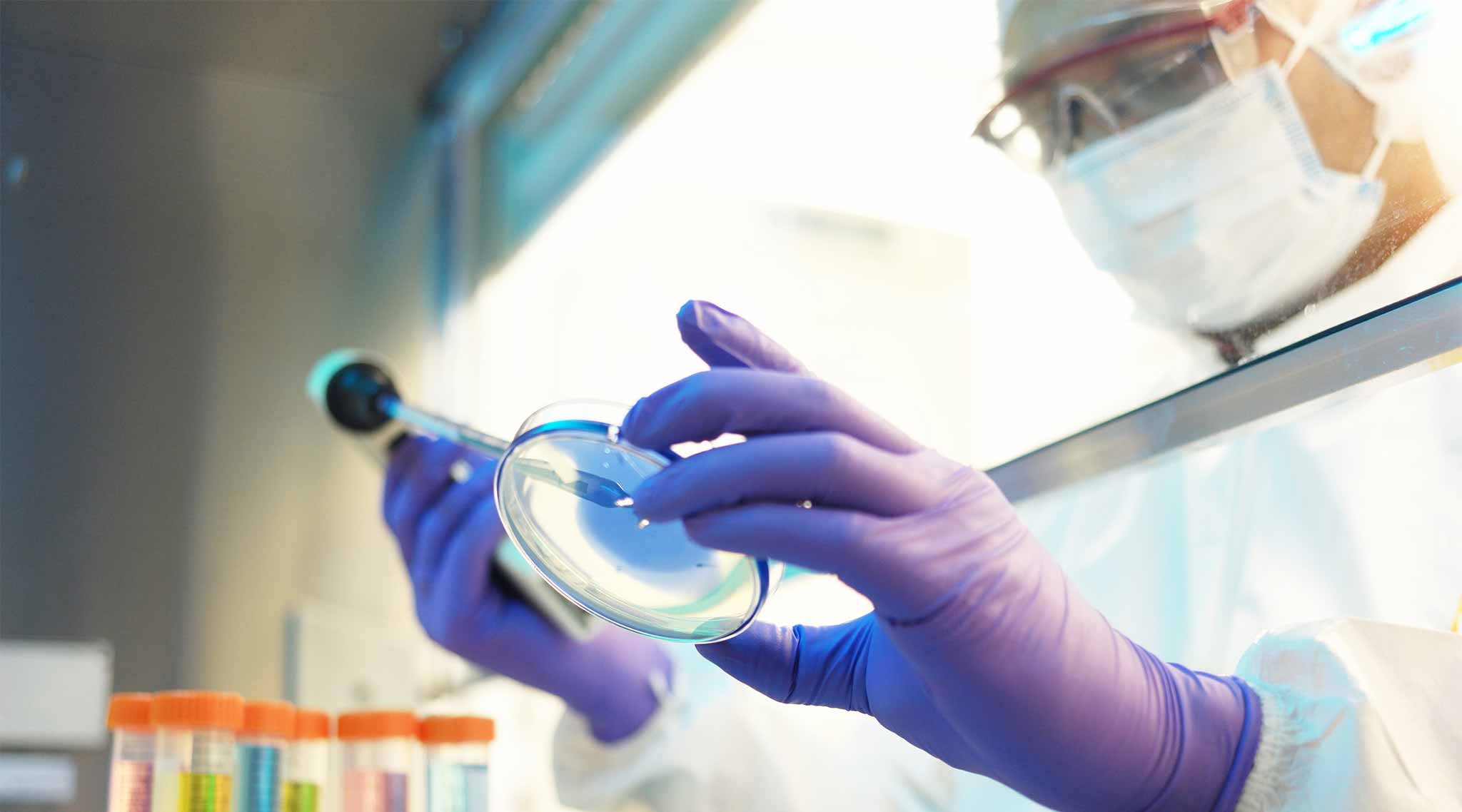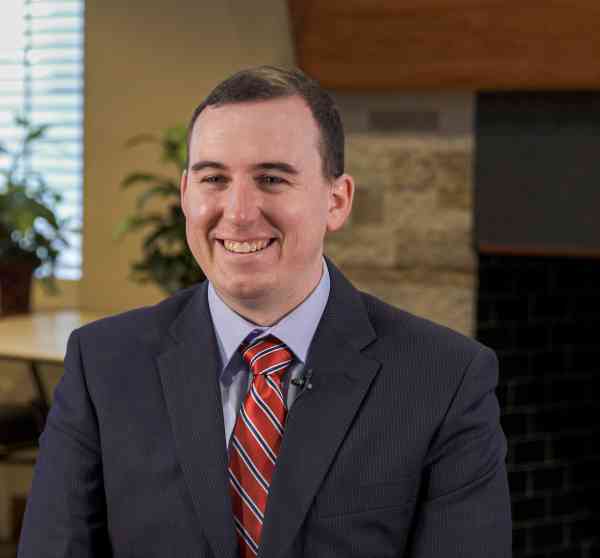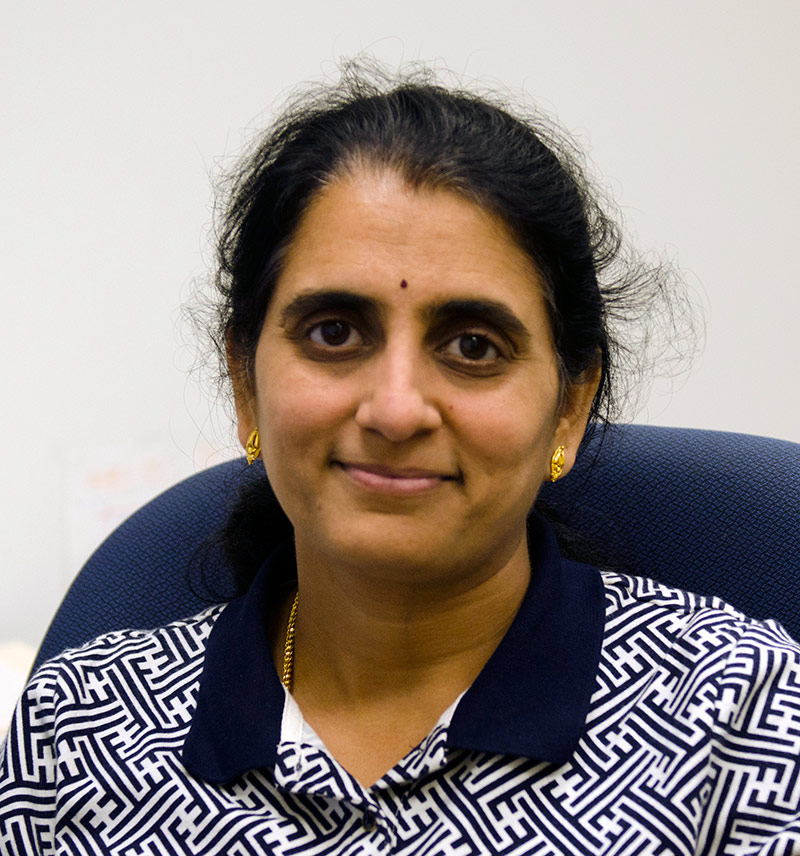Get started with Mizzou
Apply hereMaster of science
Embark on a rewarding career driving innovation. The University of Missouri’s (Mizzou) online master of science in biological engineering explores this rapidly growing, interdisciplinary field that fuels discoveries behind new products, systems and processes. Rigorous course work examines the intersection between physiological and biological functions, involves extensive research and helps STEM professionals advance their existing skill sets.
At the same time, the various applications of bioengineering lead to a number of career paths. The program reflects these possibilities, highlighting three broad disciplines — biomedical engineering, bioprocess engineering and bioenvironmental engineering — while allowing for flexibility. Customize your degree around two of these areas and whether you see yourself influencing patient care, medical device development or resource and environmental conservation.
About the online master’s in biological engineering
Innovative ideas transform into more efficient processes or more advanced medical devices and treatments. Mizzou’s College of Agriculture, Food and Natural Resources and the College of Engineering recognized the increasing demand for biological engineers and collectively launched the Department of Biomedical, Biological and Chemical Engineering. The home of the online master’s in biological engineering, the Department combines both Colleges’ resources and capabilities to graduate take-charge professionals pulling from a specialized skill set and ready to enrich their respective STEM disciplines.
The online master’s in biological engineering accommodates working professionals interested in building their knowledge base around the intersection of design, systems and related sciences. This flexible, entirely online program of study exposes students to the following:
- Biomedical engineering, behind health care developments involving disease detection and treatments, rehabilitation and refined biomedical processes
- Bioprocess engineering, key for creating more effective products and ensuring food safety and increasingly utilizing renewable biological materials to improve packaging, quality and distribution
- Bioenvironmental engineering, which aims to construct more innovative and sustainable water and air quality systems and drives current conservation efforts
Through this non-thesis program, students investigate and discuss the role of scientific and engineering principles in product, system and process design and development. Prepare to:
- Develop a unique plan of study based on your interests and career goals
- Conduct research and review literature related to the biological sciences, biomedical imaging, bioprocesses, neuro-engineering, bioelectronics, water studies and sustainability
- Examine the overlap between biological processes and engineering and how such applications contribute to medical and technological advances
- Propose solutions related to how the body functions, including for medical devices, patient care and public health
- Compile and analyze data to uncover and support new products, processes and systems
- Engage in virtual discussions with faculty involved in interdisciplinary research and inquisitive, motivated professionals like yourself
Quick facts
Official name
Master of Science in Biological EngineeringCampus
Program type
Master's degreeAcademic home
College of Engineering | Department of Biomedical, Biological and Chemical EngineeringDelivery mode
100% onlineAccreditation
Higher Learning CommissionCredit hours
30Estimated cost
$35,061.00*This cost is for illustrative purposes only. Your hours and costs will differ, depending on your transfer hours, your course choices and your academic progress. See more about tuition and financial aid.

Career prospects
Begin a career influencing patient care or natural resource management from multiple angles. Mizzou’s online master’s in biological engineering gives you the tools to develop new products, systems and processes that improve human and animal health, better utilize bio-resources and protect the environment. Through this vast scope, the Bureau of Labor Statistics identifies 5% more positions for bioengineers and biomedical engineers through 2023.
Opportunities exist in:
- Agriculture and food processing
- Biomedical engineering
- Genetic engineering
- Medical device development
- Regenerative medicine
- Rehabilitation engineering
- Research and development
Program structure
The online master’s in biological engineering is a non-thesis, 30-credit-hour program. Students begin with courses in research and trends in biological engineering before focusing their degree toward two of three areas: biomedical engineering, bioprocess engineering and bioenvironmental engineering. Each student submits a plan to their adviser to ensure they fulfill all degree requirements.
In addition to course work, the program involves an independent project based on research and analyzing an existing process or system or designing a practical solution related to engineering and the biological sciences.
Students typically take two classes each semester and finish the program in two to three years. The program does not require on-campus sessions.
Course work covers
No matter how you customize your degree, you’ll explore topics in:
- Literature for research and the publication process
- Trends in biological engineering
- Research methods and data analysis in biological engineering
- Biomaterials engineering
- Orthopedic biomechanics
- Biomedical imaging
- Biomolecular engineering
Review all requirements for the online master’s in biological engineering.
Delivery
100% onlineCalendar system
Semester-basedTypical program length
2-3 yearsTypical course load
2 classes per semesterAccreditation
The University of Missouri is accredited by the Higher Learning Commission, one of six regional institutional accreditors in the United States.

Faculty spotlight

Anandhi Upendran is the program director for the Biomedical Entrepreneurship Training for Aging program funded by the National Institute on Aging and the National Institutes of Health. Its goal is to impart skills required for the scientific workforce for biomedical product development and enable interaction with cross-sector landscapes in modern academic institutions. Dr. Upendran also leads the life science innovation and entrepreneurship graduate certificate program. Her expertise helps develop and lead educational and training programs in biomedical innovation for undergraduate and graduate students and other professionals. Currently, her research program is focused on developing preclinical animal models for evaluating drugs and RNA interference therapy using nanoparticles. She also conducts clinical research and trials to validate biomarkers, diagnostic agents and sensor devices developed in the laboratory.
Reginald Rogers' research interests include improved water resources using novel nanomaterials (e.g. carbon nanotubes). His group’s focus is to develop 2D and 3D structures specifically tailored toward the removal of targeted contaminants from water systems. In addition, his group has an interest in developing carbon nanomaterial-based structures for energy storage applications, including advanced sodium-ion systems and supercapacitors. Rogers has been recognized for his teaching, research and service efforts. He received the 2021 Mentor on the Map Award from the National Organization for the Professional Advancement of Black Chemists and Chemical Engineers, the 2019 American Chemical Society Stanley C. Israel Regional Award for Advancing Diversity in the Chemical Sciences and the 2018 Dr. Janice A. Lumpkin Educator of the Year Award from the National Society of Black Engineers.
